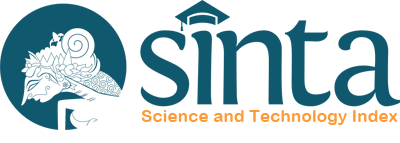Overview Of Respiratory Hygiene Implementation In The Community Of Baiturrahman Sub-District In Banda Aceh During The Covid-19 Pandemic
Abstract
Introduction: Coronavirus disease 2019 (COVID-19) is an infectious respiratory disease caused by severe acute respiratory syndrome coronavirus 2 (SARS-CoV 2). The Indonesian government and the World Health Organization (WHO) have made some efforts in the fight against the spread of COVID-19, one of which is by implementing respiratory hygiene. Respiratory hygiene, as an on-pharmaceutical intervention (NPIs), is one of the prevention measures designed to limit the transmission of respiratory infection spread by airborne and droplet routes.
Method: This study used a descriptive research method with a simple random sampling technique. One hundred six people from ten villages in Baiturrahman Sub-district were selected as the subject of the study. The data were collected using an online questionnaire (google form). The obtained data were analyzed through univariate analysis.
Result: The results revealed that only 4 respondents (3,8%) had a high level of respiratory hygiene compliance, 57 respondents (53,8%) were fairly compliant with respiratory hygiene, and 45 respondents (42,5%) had a very low respiratory hygiene compliance level. The study also found that 50% of respondents had used non-medical masks when doing activities outside the home, and 8.5% had applied physical distancing.
Conclusion: The compliance level of good respiratory hygiene in the Baiturrahman Sub-District in Banda Aceh is still low, and the most common COVID-19 precautions the community takes are the use of non-medical masks when doing activities outside the home.
Downloads
 Viewer: 391 times
Viewer: 391 times
 PDF (Bahasa Indonesia) downloaded: 285 times
PDF (Bahasa Indonesia) downloaded: 285 times











